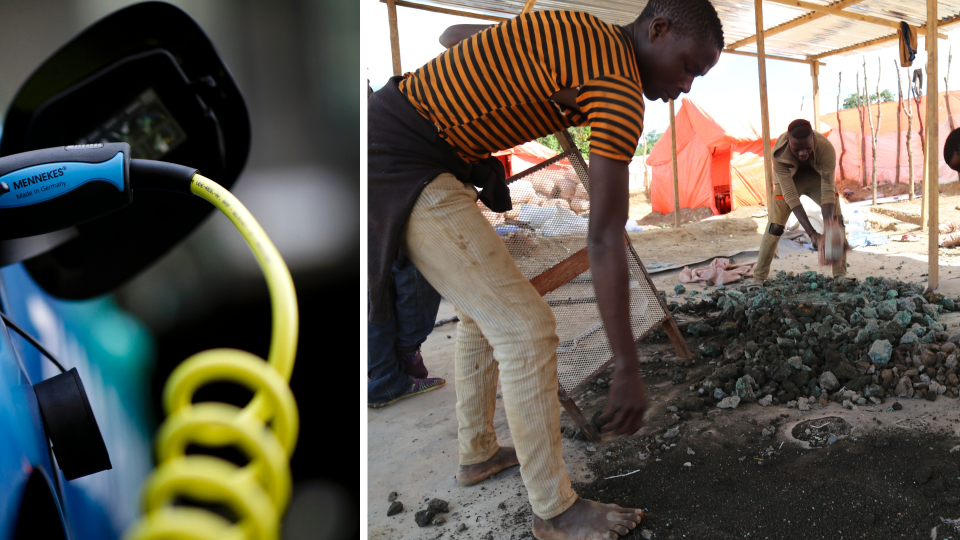The darker side of electric cars

Eco-conscious citizens are finding electric cars increasingly appealing, but there are worrying links to child slavery.
More than one million electric cars were sold in 2017, with that figure predicted to jump to 4.5 million by 2020, or 5 per cent of all cars and trucks sold.
Also read: Big banks move to stop charging fees to dead people
However, cobalt – a critical material in lithium-ion battery production – is often mined under dangerous conditions by underpaid and sometimes under-age workers, the World Economic Forum (WEF) is warning.
“Dangerous working conditions, risks to people’s health, and child labour are a huge problem in the cobalt mines of the Democratic Republic of the Congo (DRC),” WEF writer Sean Fleming warned as part of the Sustainable Development Impact Summit.
Used to power smartphones, electric vehicles and laptops, cobalt is in high demand but the mining of it is placing children as young as 10 in danger, the WEF said.
“The DRC has a history steeped in conflict stretching back to when it was a colony of Belgium. Now the country is the focus of the 21st century’s equivalent of a gold rush.
Also read: Global financial stability risks rising with trade tensions, IMF says
“Concentrated in one area (the southeastern province of Lualaba, near the border with Zambia), cobalt mining has become a source of income for many of the country’s struggling population.”
But it comes with serious health risks for workers, and alarmingly, it’s difficult to ascertain whether batteries have been produced under slave-like conditions.
Could you quit your phone?
In an open letter to those who use smartphone users, electric cars and international travel, slavery and human trafficking expert, Siddharth Kara said the time for inaction has ended.
He called on consumers to boycott these electronic products and services until companies buying from the DRC establish independent systems to ensure supply chains are free of oppression, slavery and child labor.
“Second, demand that the CEOs of the companies who buy cobalt from the DRC donate a modest 1 per cent of their net worth and allocate 1 per cent of their company’s annual free cash flow towards the education, health, security, decent pay, and dignified treatment of their employees in DRC.”
Also read: This is how much more you really spend on a new car
There’s hope
The WEF’s Global Battery Alliance is also attempting to address the problem. According to the CEO of international development organisation Pact, Mark Viso, the alliance has a chance to “revolutionise the global battery market”.
“More than that, it will impact the lives of millions of artisanal and small-scale miners and their families who help make the world’s innovations possible,” he wrote for the World Economic Forum.
The coalition of industry leaders, manufacturers, NGOs and international organisations aims to address the market’s problems.
Also read: The apartment projects BLACKLISTED by a major Aussie bank
“This is not only the responsible move, but one that will help all of us be more responsive to our customers — whether those customers are cell phone users in Beijing, households on Southern California’s energy grid, or miners in the DRC.”

 Yahoo Finance
Yahoo Finance 
